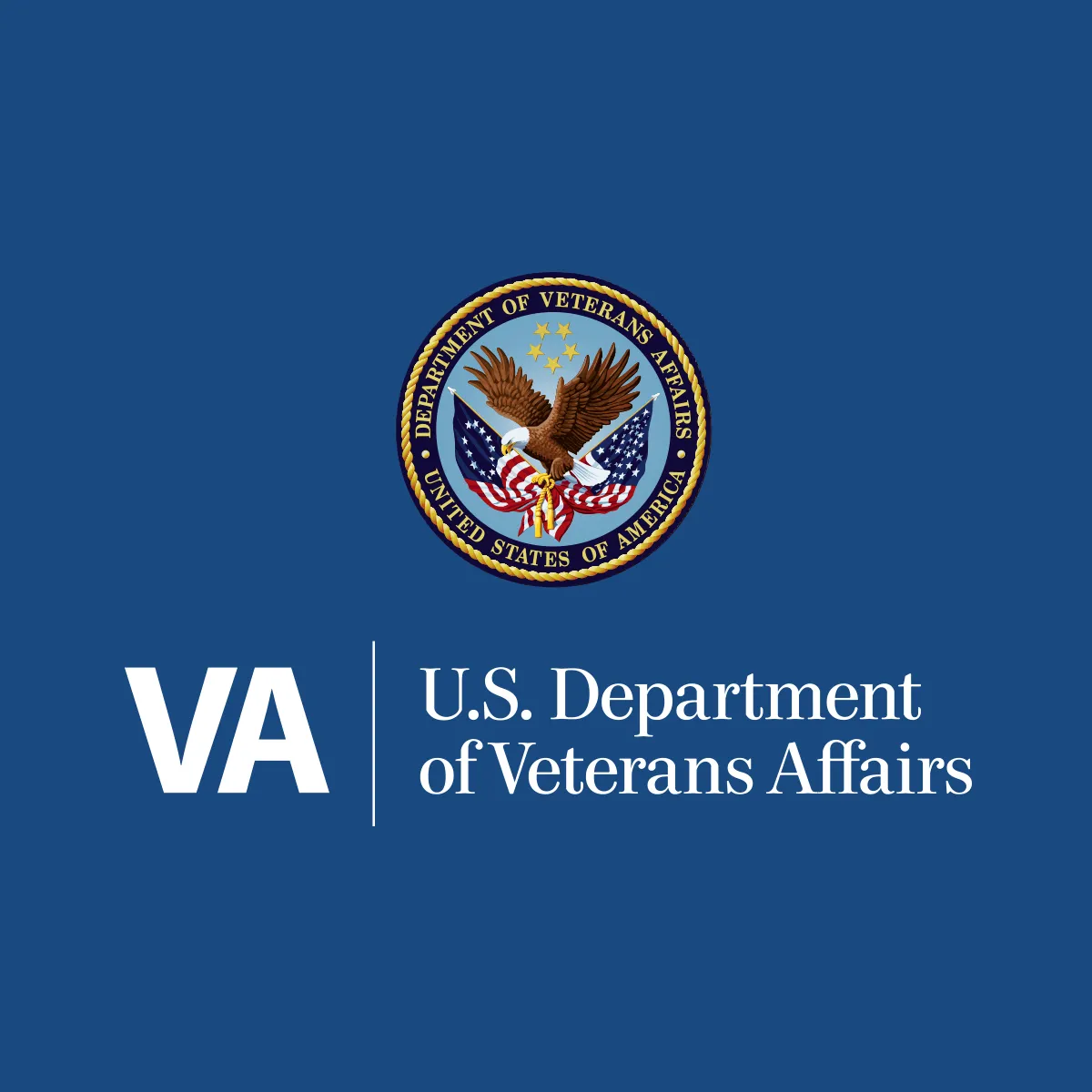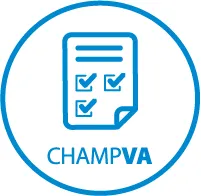Veterans
If you're a military veteran with TRICARE, TRICARE for Life, VA benefits, or CHAMPVA, and you're also Medicare eligible, I’m here to help. I specialize in assisting veterans navigate their healthcare options to ensure they receive the best possible coverage. Whether you're new to Medicare or just need a review of your current benefits, I'm committed to making the process as smooth and straightforward as possible.

VA
The VA, or the Department of Veterans Affairs, is a federal government agency in the United States responsible for providing a wide range of services and benefits to military veterans and their families. The VA's mission is to support veterans by ensuring they receive the care, support, and benefits they have earned through their service.
Health Care: The VA operates a nationwide system of hospitals, clinics, and other medical facilities to provide health care services to eligible veterans.
Benefits: This includes disability compensation, pensions, education and training benefits (such as the GI Bill), home loan guarantees, and life insurance.
Burial and Memorial Services: The VA provides burial benefits and operates national cemeteries where veterans can be buried with honor.
Support Services: The VA offers various programs aimed at helping veterans transition to civilian life, find employment, and access mental health support.ch-language pathology services, and continued occupational services.
The VA plays a crucial role in supporting the well-being of veterans and ensuring they receive the recognition and assistance they deserve for their service.
Understanding the specifics of Medicare Part A coverage is crucial for anyone approaching eligibility age or caring for someone who is, as it helps in planning for healthcare needs and expenses in retirement or in the face of health challenges.

TRICARE
TRICARE is a health care program for active-duty and retired members of the uniformed services, their families, and survivors. It is managed by the Defense Health Agency (DHA) under the Department of Defense (DoD). TRICARE provides comprehensive health coverage, including health plans, special programs, prescriptions, and dental plans.
Eligibility:
Active-duty service members (Army, Navy, Air Force, Marine Corps, Coast Guard, Public Health Service, and National Oceanic and Atmospheric Administration)
Retired service members
National Guard/Reserve members
Family members of the above
Survivors
Certain former spouses
Medal of Honor recipients and their families
TRICARE offers several health plan options, including:
TRICARE Prime: A managed care option similar to an HMO, which requires beneficiaries to have a Primary Care Manager (PCM) and referrals for specialist care.
TRICARE Select: A fee-for-service option that allows beneficiaries to choose their providers and doesn’t require referrals for most services.
TRICARE For Life: A Medicare wraparound coverage for TRICARE beneficiaries who are also eligible for Medicare Part A and Part B.
TRICARE Reserve Select: A premium-based health plan for qualified members of the Selected Reserve and their families.
TRICARE Retired Reserve: A premium-based health plan for qualified retired Reserve members and their families.
TRICARE offers a pharmacy benefit that provides access to prescription medications. Beneficiaries can obtain medications through military treatment facility pharmacies, retail network pharmacies, home delivery, or non-network pharmacies.
Dental and Vision Plans:
TRICARE Dental Program: Available to active-duty family members, National Guard, and Reserve members.
TRICARE Retiree Dental Program: Available to retired service members and their families.
TRICARE Vision Benefits: Vision coverage is available for active-duty service members and their dependents, and for certain other eligible beneficiaries.
Special Programs:TRICARE also offers various special programs to address specific health care needs, such as the Extended Care Health Option (ECHO) for family members with special needs, and the Autism Care Demonstration program.
Global Coverage: TRICARE provides worldwide coverage, which is crucial for military members and their families who may be stationed overseas.
Cost-Sharing: Depending on the plan, there may be cost-sharing aspects like co-pays, deductibles, and enrollment fees, although active-duty members often receive care with little to no out-of-pocket costs.
For beneficiaries who have other health insurance (OHI), TRICARE typically acts as a secondary payer, meaning it will pay after the OHI has paid its portion.
TRICARE is an essential component of the military health system, ensuring that service members and their families receive the care they need both during and after their service.

CHAMPVA
CHAMPVA, or the Civilian Health and Medical Program of the Department of Veterans Affairs, is a health care benefits program in the United States. It provides coverage for certain eligible dependents and survivors of veterans. CHAMPVA is a comprehensive health care program that shares the cost of covered health care services and supplies with eligible beneficiaries.
Eligibility
To be eligible for CHAMPVA, an individual must be one of the following:
The spouse or child of a veteran who has been rated permanently and totally disabled due to a service-connected disability by the VA.
The surviving spouse or child of a veteran who died from a VA-rated service-connected disability.The surviving spouse or child of a veteran who was, at the time of death, rated permanently and totally disabled due to a service-connected condition.
The surviving spouse or child of a service member who died in the line of duty, not due to misconduct (Note: in most cases, these family members would qualify for TRICARE rather than CHAMPVA).
Coverage
CHAMPVA covers a wide range of medical services and supplies, including:
Inpatient and outpatient hospital careMental health servicesPrescription medicationsDurable medical equipmentHome health services
Skilled nursing care
Coordination with Other Insurance
If a beneficiary has other health insurance, CHAMPVA is usually the secondary payer, meaning it pays after the primary insurance has paid. However, if the beneficiary is eligible for Medicare, CHAMPVA acts as the secondary payer after Medicare.
CHAMPVA is often compared to TRICARE, which is the health care program for active duty and retired military members and their families. However, CHAMPVA is specifically for the dependents and survivors of veterans who meet the eligibility criteria outlined above.
Medicare Eligibility
Age
You can qualify for Medicare by age once you are 65 years or older. You will become eligible to enroll three months before your 65th birthday until three months after turning 65. This window is called the Initial Enrollment Period. You can apply for Original Medicare during this period if you are eligible. If you decide to delay your enrollment, you may face a late enrollment penalty whenever you decide to enroll for Medicare at a later time. However, you can avoid these late enrollment penalties as long you qualify and enroll during a Special Enrollment Period.
Disability
People who receive Social Security Disability benefits can qualify for Medicare once they have received benefits for 24 months. Individuals in this category become automatically eligible on the 25th month.
Health Condition
People suffering from End-Stage Renal Disease and Amyotrophic Lateral Sclerosis may become eligible for Medicare even when under 65. Those with kidney failure who need a transplant or frequent dialysis qualify for Medicare automatically. Medicare will begin coverage after the first dialysis.

Insurance can be complex, but we are here to simplify it for you. We believe in listening carefully to your concerns, understanding your goals, and providing tailored solutions that fit your lifestyle.

We do not offer every plan available in your area. Any information we provide is limited to those plans we do offer in your area. Please contact Medicare.gov or 1-800-MEDICARE to get information on all of your options.